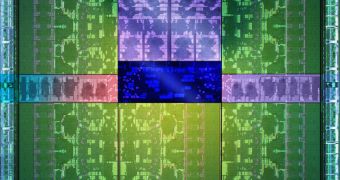Right now, the 28nm manufacturing process technology is heavily exploited by Taiwan Semiconductor Manufacturing Company, as it scrambles to keep up with the orders on the part of Qualcomm, NVIDIA and AMD.
This is similar to how TSMC handled the 40nm process, though without the low chip yield drama. It also resembles the treatment of the 65nm technology before it.
Still, as with all things, the 28nm node will reach the end of its allotted limelight sometime soon.
By soon we mean a year or so, since the foundry will start making 20nm chips from 2014 onwards.
The 28nm node will continue to see business for years afterwards, just like 40nm and 65nm still experience.
That isn't what the company has been looking at lately though. Instead, TSMC has been building a picture of how the 20nm technology will progress, marketing-wise, in comparison to 28nm.
That 28nm saw good business wasn't so much owed to higher client interest as it was to the fact that TSMC made sure it wouldn't have the same shortage problems as with 40nm.
Since the same precautions, or better ones, will be taken for 20nm, a business increase will be entirely dependent on customer demand.
As it turns out, Taiwan Semiconductor Manufacturing Company is certain that the next-generation 20nm manufacturing technology will experience demand even higher than the current star process.
“We think that our volume of 20nm SoC next year, 2014, will be greater than the volume of 28nm last year and we think the volume of 20nm SoC in 2015 will be greater than the volume of 28nm this year,” said Morris Chang, chief executive officer and chairman of TSMC, during a conference call with financial analysts.
System-on-chip devices are platforms that merge a CPU with the graphics chip, the memory controller, the I/O interfaces and many other things that PCs let the motherboard chipset hold.
Since there is no longer any question as to whether or not SoCs are taking away the market share of CPUs, a higher interest in them can only reflect positively on TSMC and any other suppliers of such things.

 14 DAY TRIAL //
14 DAY TRIAL //